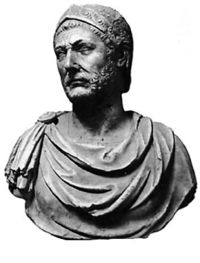Dimi95
Χριστός ἀνέστη
Again , you asserting delusion.Please drop the false fallacy you are mis-using. You actually said "they can't understand it.Nobody can" that means we don't know.
You cannot get your specific magic being from that.
Ad hominem
No actually i questioned it myself as someone who did not belive in God.No because there isn't any. You have been misled by crappy apologetics.
You thinking that is some kind of crappy is irrelevant.
Ofc , why would i think otherwise?The big bang is a change of state of the universe, not an explosion.
Ofc , but we have the Laws of this Universe.We do not know if there are infinite big bangs, a multi verse, we do not know.
We have this information that at some point all started.
We also know that everything in this Universe has a Cause.We also know where Cause stops in Infinite regression.
Only If It is 'Uncaused'.
We don't say it is therefore eternal universe , we don't know anything else beyond this universe.
So just because Quran and everything you mentioned is not true Christ is not true?It does not make The Quran any more true and same for your book.
You need also to understand that you do straw-man on my position since i am an Eastern Orthodox.
I don't belive in 'Sola Scriptuta'.
You confused me with Protestant.
Again Absence of Evidence is Evidence of Absence..Is there a point here? Dever has demonstrated the Biblical narrative is false.
William Dever: From the beginnings of what we call biblical archeology, perhaps 150 years ago, scholars, mostly western scholars, have attempted to use archeological data to prove the Bible. And for a long time it was thought to work. [William Foxwell] Albright, the great father of our discipline, often spoke of the "archeological revolution." Well, the revolution has come but not in the way that Albright thought. The truth of the matter today is that archeology raises more questions about the historicity of the Hebrew Bible and even the New Testament than it provides answers, and that's very disturbing to some people.
Genesis is Mesopotamian, Exodus didn't happen as written, Moses is a literary construct. The kingdom was much smaller and more:
NOVA | The Bible's Buried Secrets | Archeology of the Hebrew Bible | PBS
In this article, archaeologist and biblical scholar William Dever discusses how archeology can offer vivid insights into the biblical world.www.pbs.org
If Y could be either true or false if X is true, then 'the truth of X implies the truth of Y' would mean nothing. The truth of X would still allow Y to be either true or false.
Look , maybe you don't understand why there is no other evidence.Maybe you eon't understand how much of the evidence was lost and destroyed.
You see this consistency of "Absence of Evidence is Evidence of Absence" ?Dever: One of the first efforts of biblical archeology in the last century was to prove the historicity of the patriarchs, to locate them in a particular period in the archeological history. Today I think most archeologists would argue that there is no direct archeological proof that Abraham, for instance, ever lived. We do know a lot about pastoral nomads, we know about the Amorites' migrations from Mesopotamia to Canaan, and it's possible to see in that an Abraham-like figure somewhere around 1800 B.C.E. But there's no direct connection.
So Democracy is a myth?Also in myth writing a character is what the name means. Abraham means "father of many". It's a myth.
Yes , he is and i know quite a bit about him.That one is a stretch. A man named Abraham would not mean magic is real. Muhammad is actually a real person as well.
Ofc , they knew not better.Semitic tribes of the time used to prefix their names with the term banū ("sons of"), so it is hypothesized that the Raham called themselves Banu Raham ......Furthermore, many interpreted blood ties between tribe members as common descent from an eponymous ancestor (i.e., one who gave the tribe its name), rather than as the result of intra-tribal ties. The name of this eponymous mythical ancestor was constructed with the patronymic (prefix) Abū ("father"), followed by the name of the tribe; in the case of the Raham, it would have been Abu Raham, later to become Ab-raham, Abraham.
From roots of words we have language today.Or do you think that human language did not evolved?
We will see however what time will give us after finding up what may be hidden.Abraham's Journey from Ur to Harran could be explained as a retrospective reflection of the story of the return of the Jews from the Babylonian exile. Indeed, Israel Finkelstein suggested that the oldest Abraham traditions originated in the Iron Age (monarchic period) and that they contained an autochthonous hero story as the oldest mentions of Abraham outside the book of Genesis (Ezekiel 33 and Isaiah 51) do not depend on Genesis 12–26, do not have there indication of a Mesopotamian origin of Abraham, and present only two main themes of the Abraham narrative in Genesis: land and offspring.
So Finkelstein suggests it's a myth they picked up. He is the author of Bible Unearthed, one of the best OT books for historical scholarship.
The genealogy proof from both Arabs and Jews who were the Progeny from Ishmael and Isaac is another irrefutable proofs since they come from different opposite sources who agree on almost everything of Abraham, except debating who was the son of sacrifice..
Last edited:


